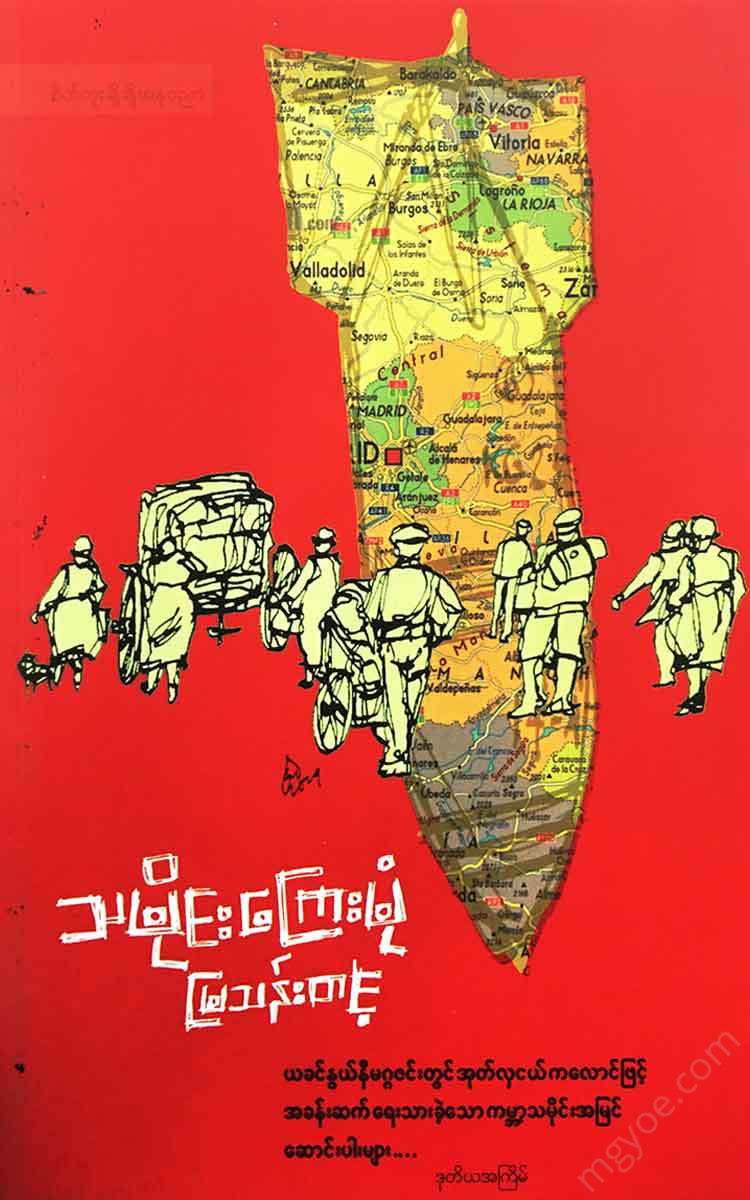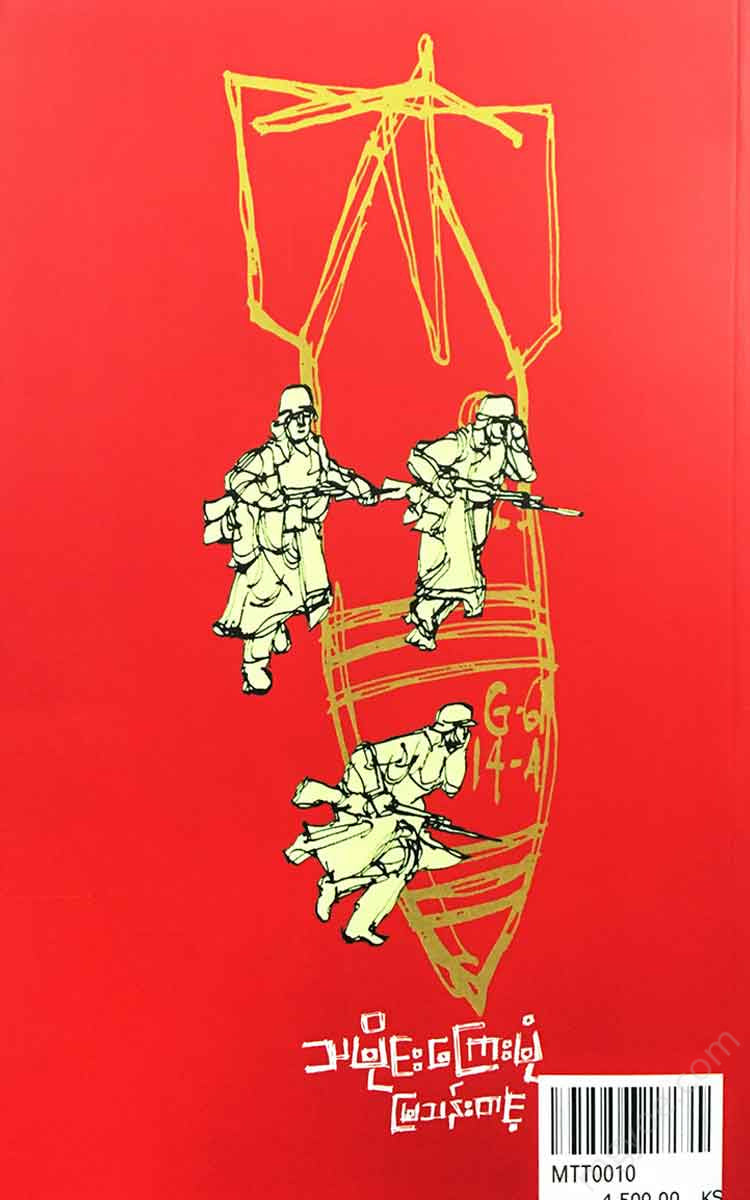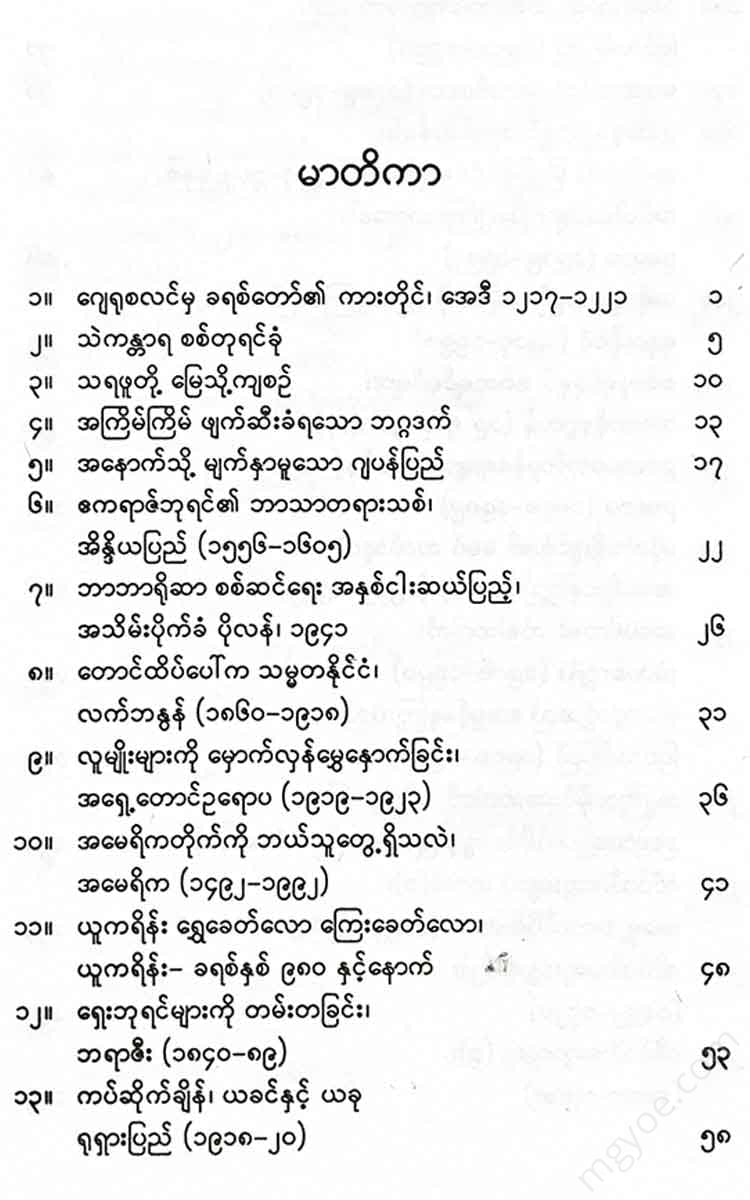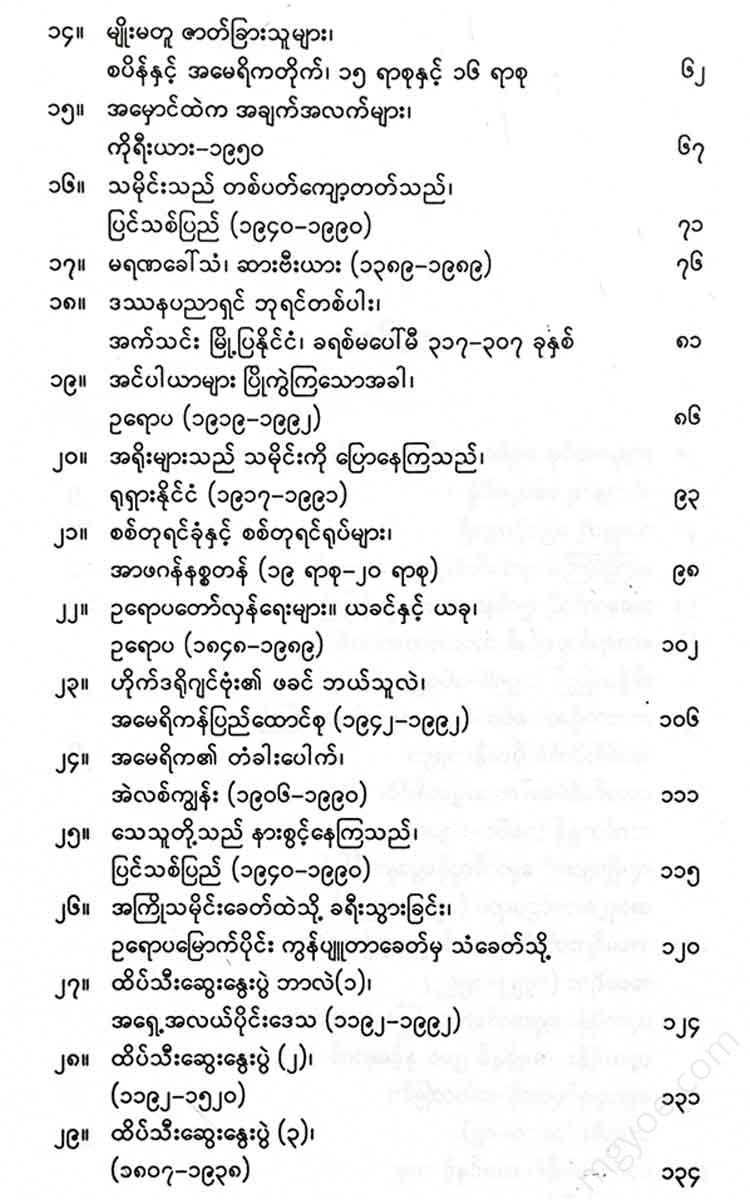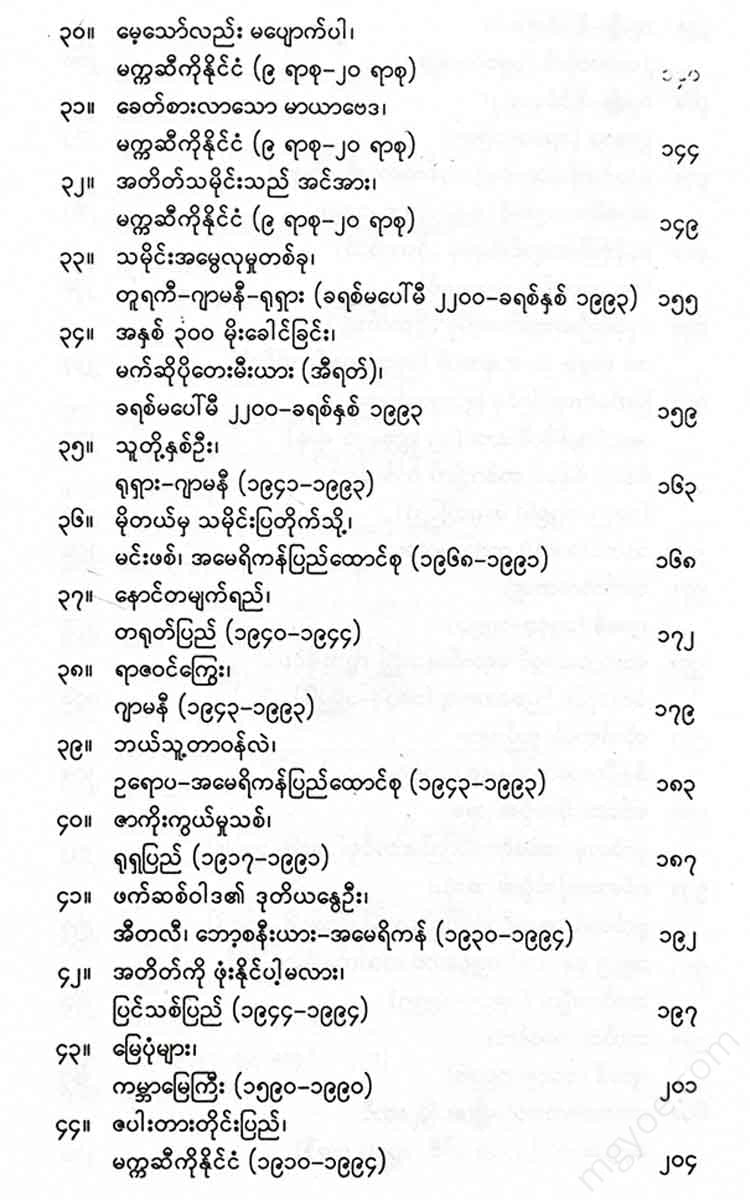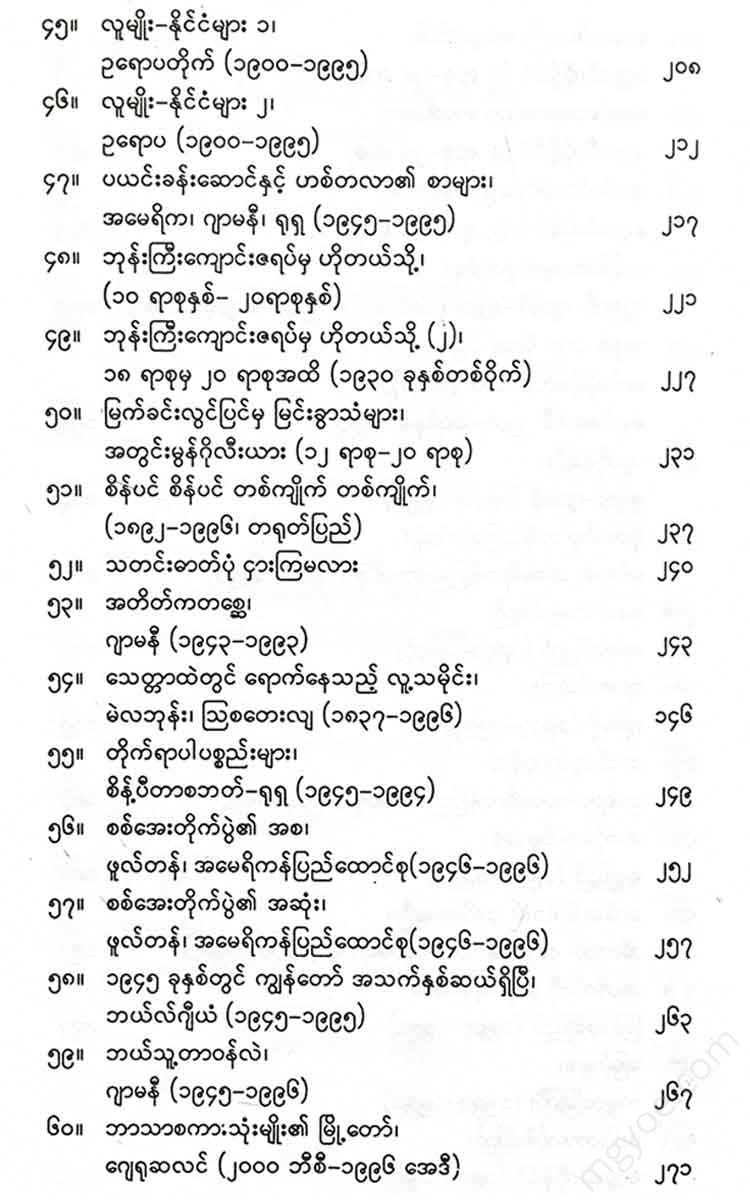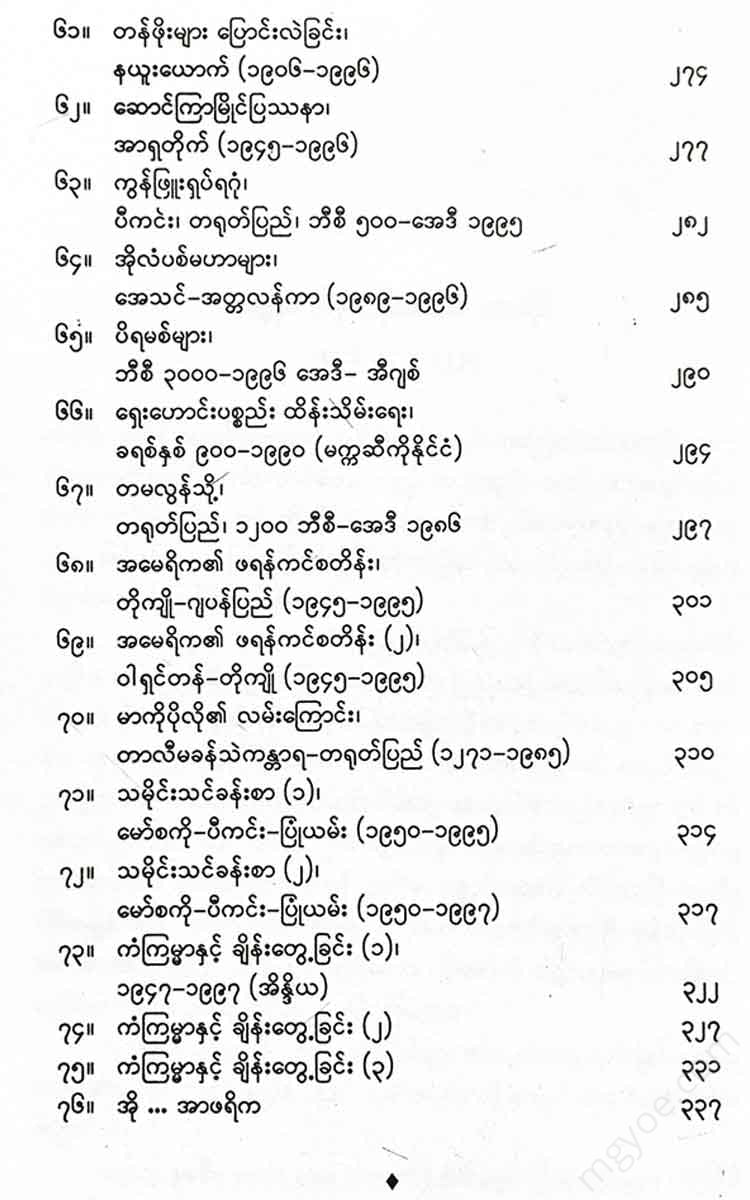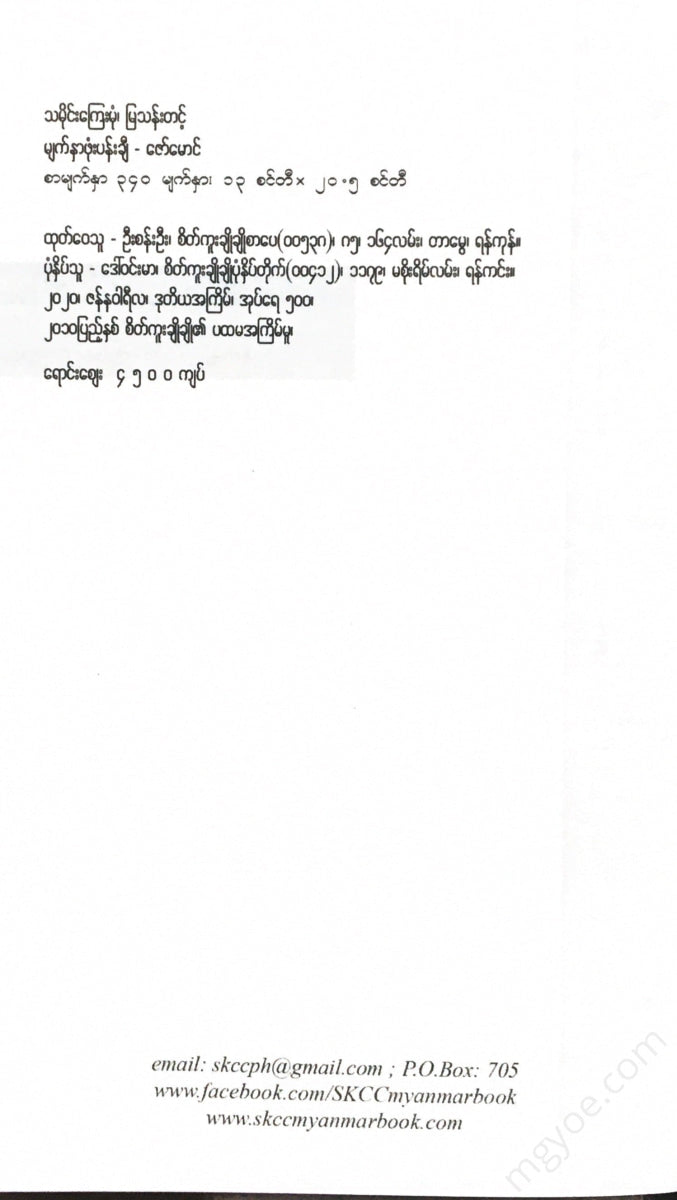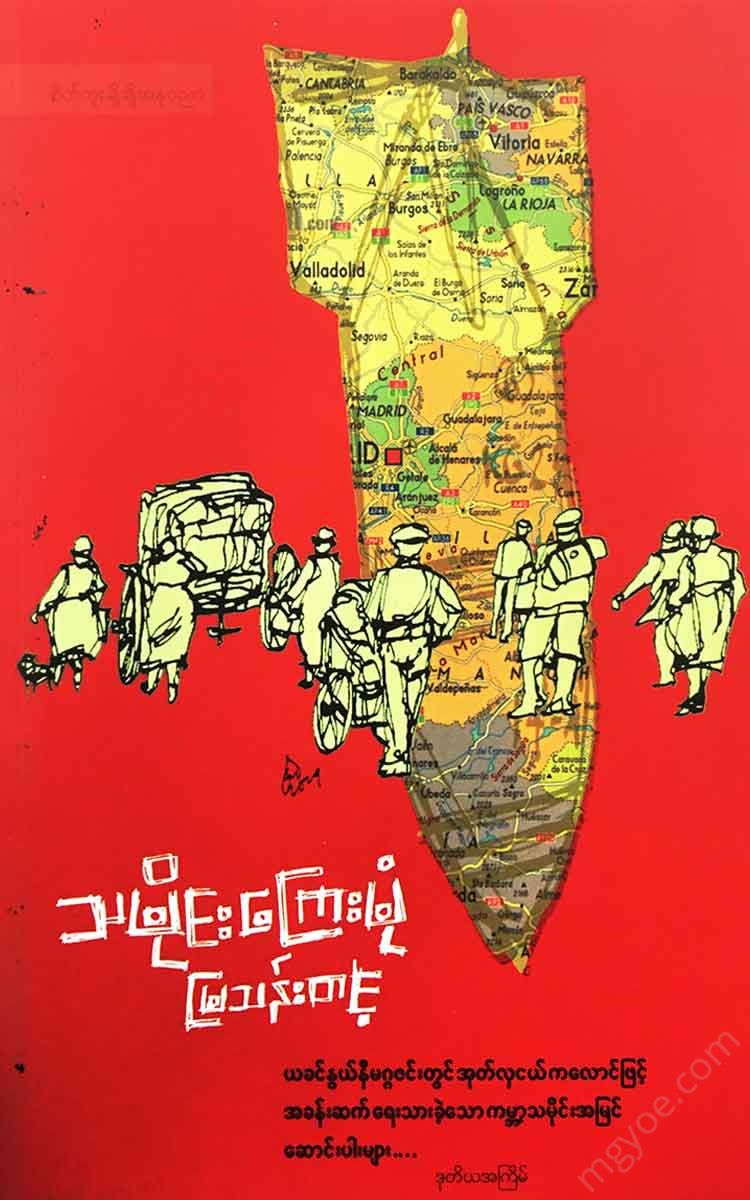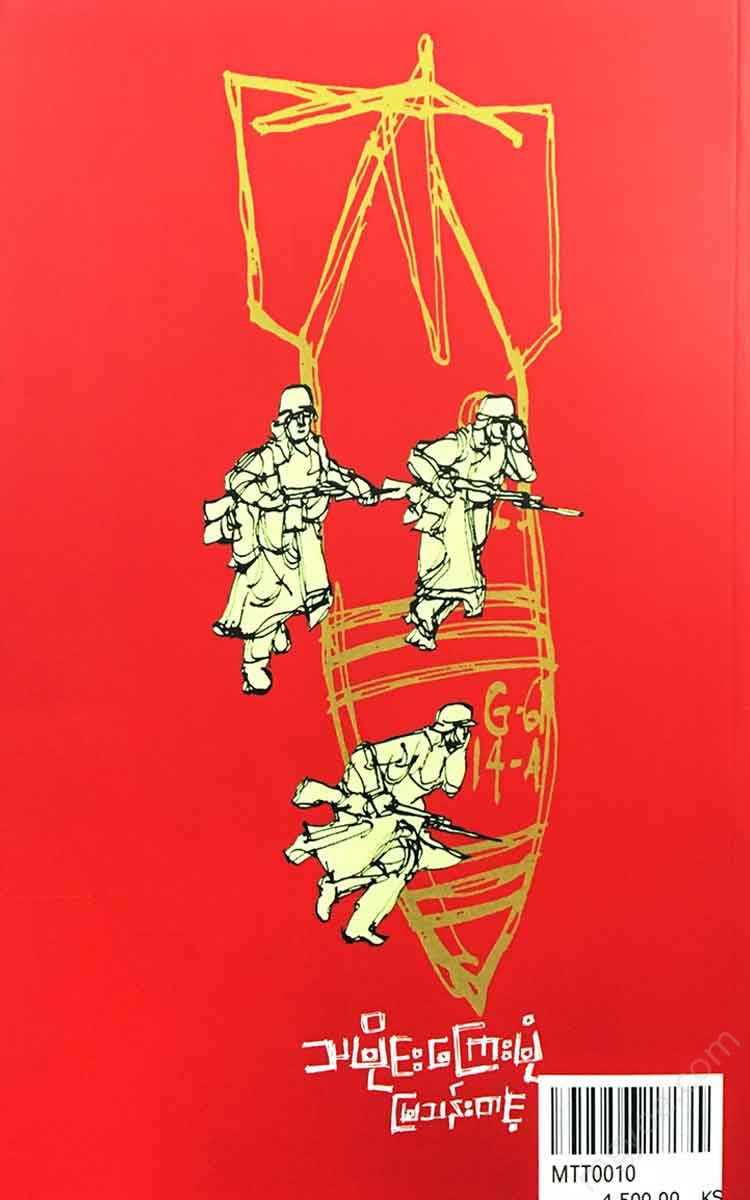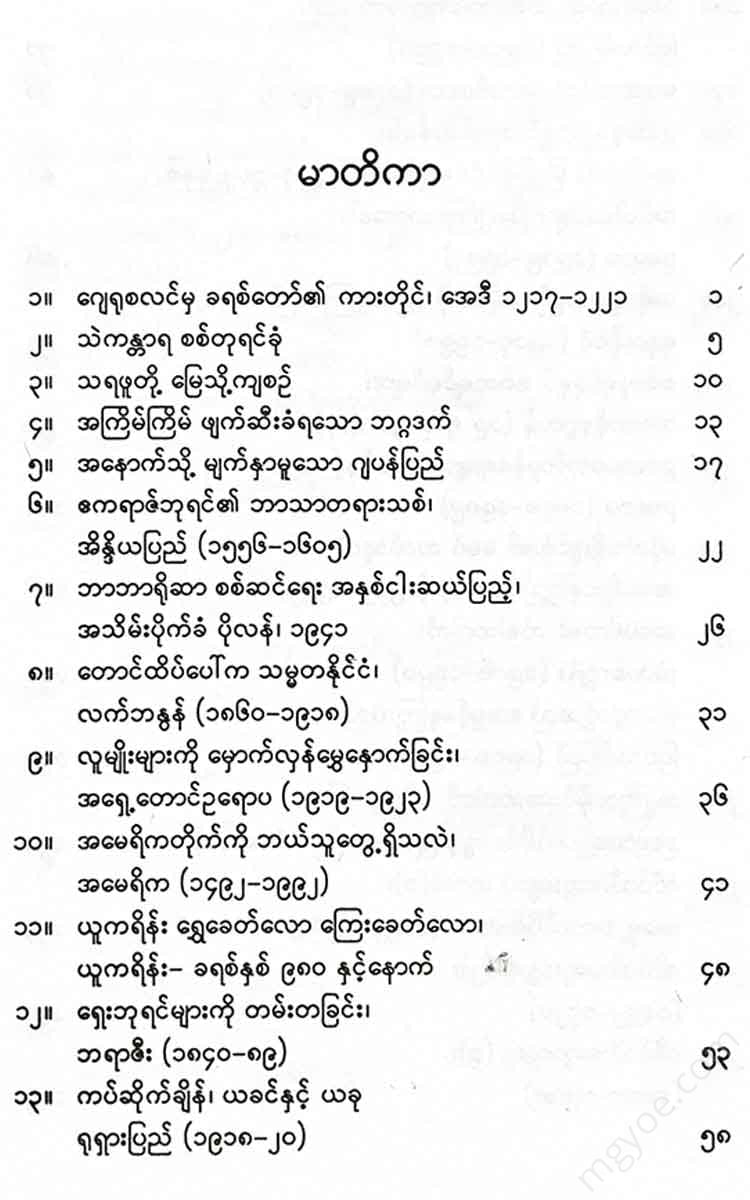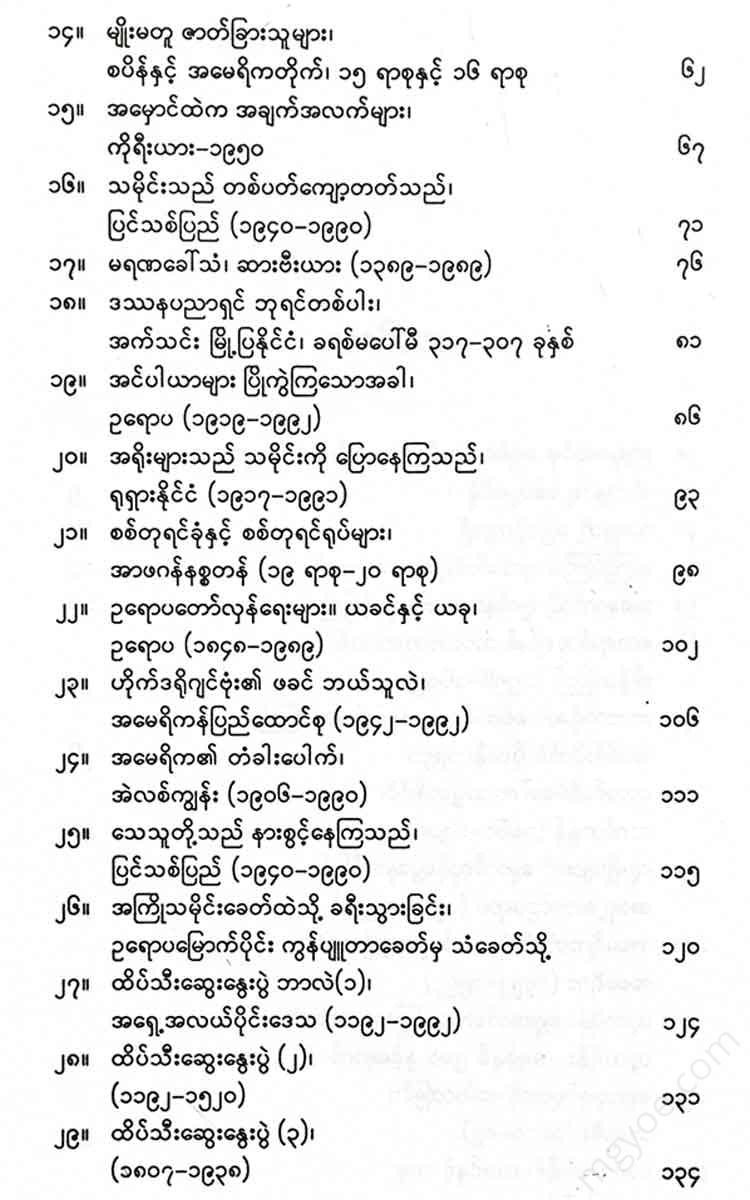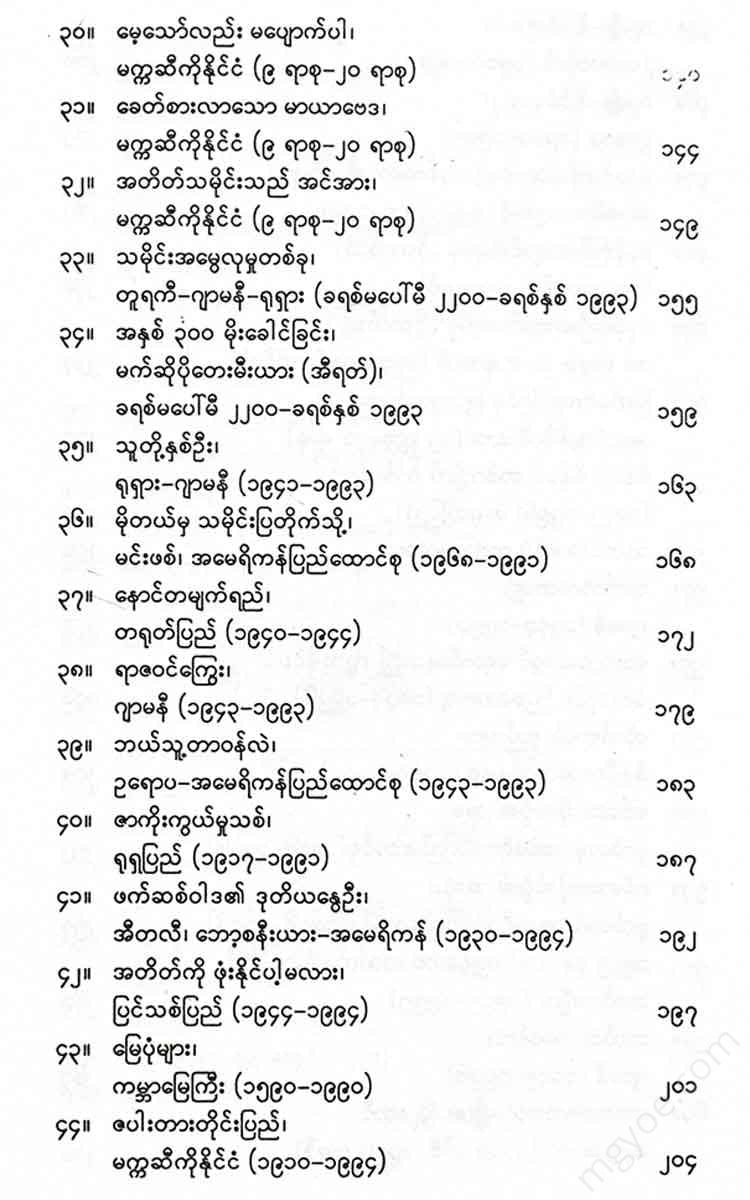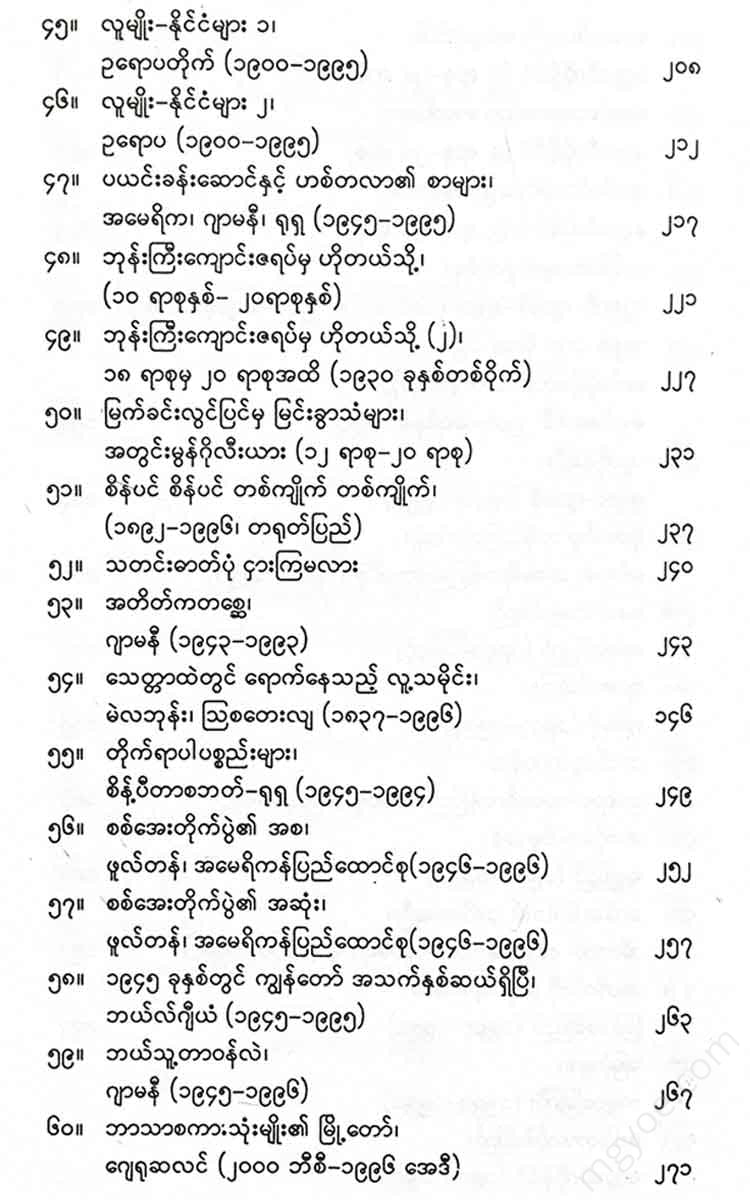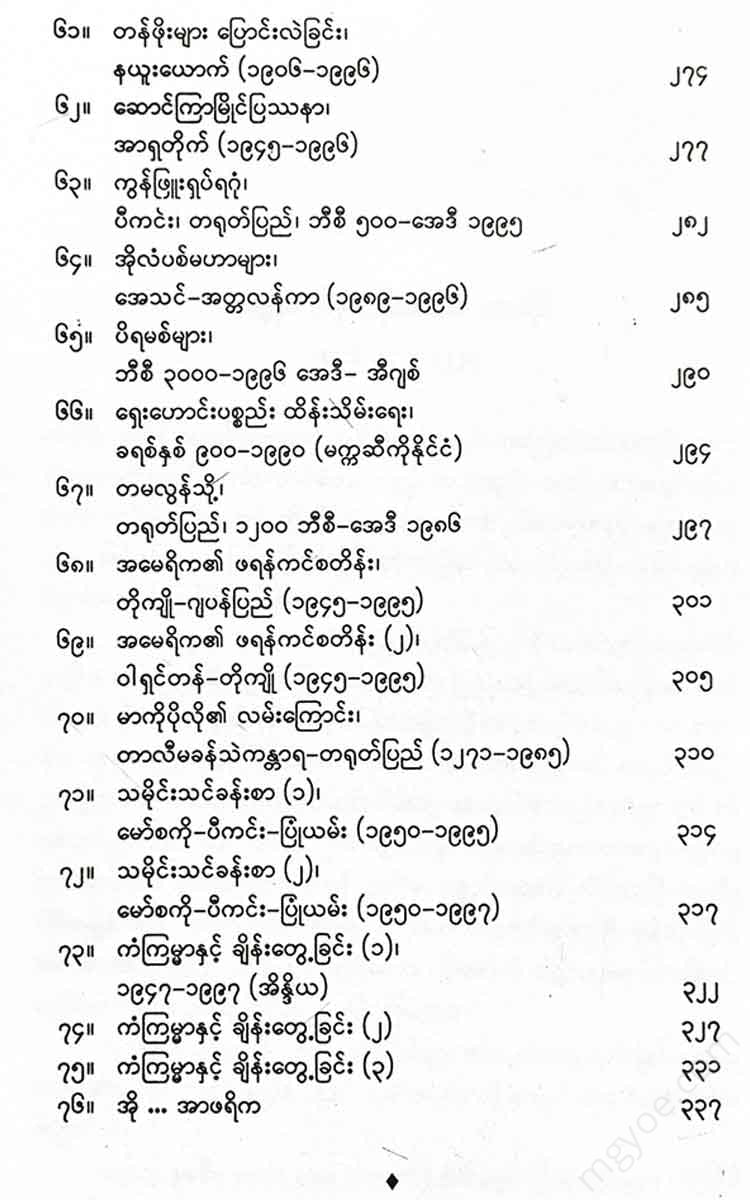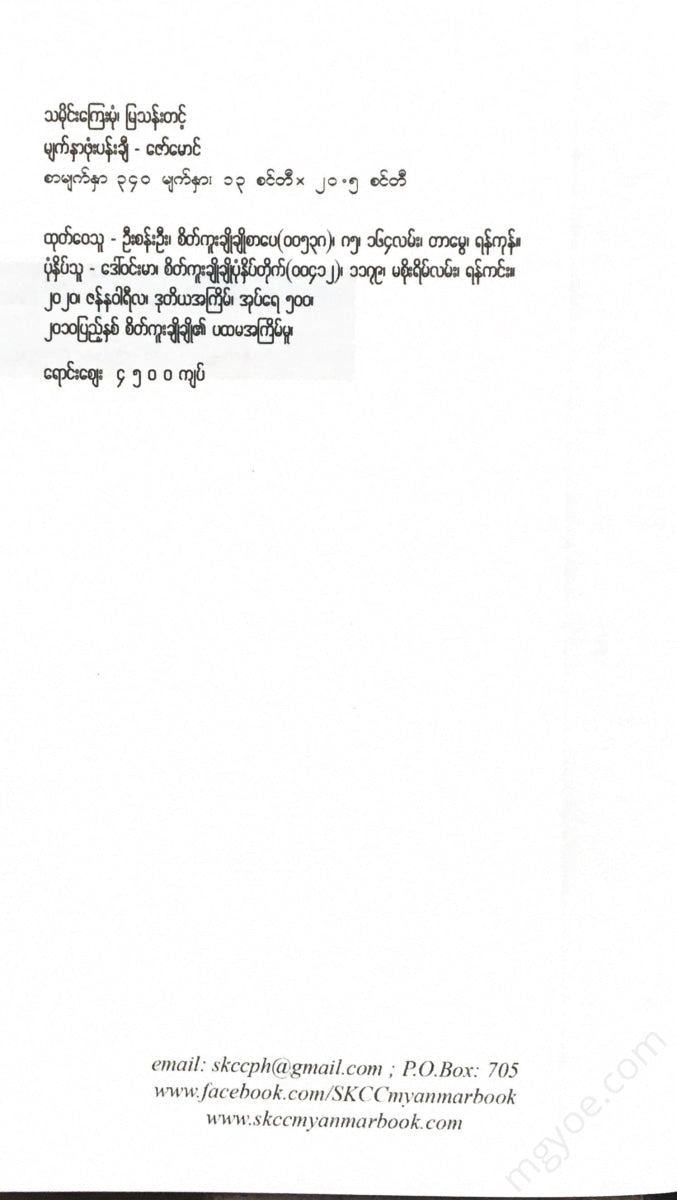စိတ်ကူးချိုချိုစာပေ
Mya Than Tint - Mirror of History
Mya Than Tint - Mirror of History
Couldn't load pickup availability
The cross of Christ from Jerusalem
( 1217-1221 AD)
Historical events sometimes have the same content but different voices. Sometimes they have the same voices but different content. Looking at such events in history that are similar in tone and different in tone, people say that history repeats itself.
A feudal king lost his country and fled to another country. When he arrived abroad, he appealed to the West for help. The West spent a lot of money to assemble international forces. They sent large armies to the Middle East. However, these armies had no clear command and control. Meanwhile, the enemy had already seized the resources in the occupied territories. Until then, the Western countries were still debating whether to use force to drive out the enemy or to negotiate a settlement.
This incident is somewhat similar to the current situation in the Persian Gulf. However, it is not the current situation.
The Fifth Crusade was a war fought in Palestine from 1217 to 1221. The Christian nations were defeated in that war, which took place about 800 years ago.
However, the Fifth Crusade in Palestine and the current Gulf War sound similar but have different content. They are similar in general but different in details.
The place where the war is now is Kuwait. The place where the war was then was Jerusalem.
The enemy the West is fighting now is Iraq and Saddam Hussein. The enemy the West was fighting then was Egypt and the Saracen dynasty that succeeded King Sultan Saladin.
This war will last a few months. Back then, the Crusades lasted four years.
The leader of the war now is the President of the United States. The leader of the war then was the Pope.
At that time, Jerusalem, the birthplace of Christ, had been under Muslim rule for a generation. During the previous Crusades, the Frankish kings and European nobles had abandoned Jerusalem to the Sultan Saladin after their defeat at the Battle of Hattin in 1187.
From then on, Jerusalem fell under the rule of Muslim kings.
So they fought two more wars to retake Jerusalem. But they were unsuccessful.
Pope Innocent III called for the Fifth Crusade. Although England and France did not participate in the Crusade, Andrew II of Hungary, Leo VI, Duke of Austria, the princes of Germany and Central Europe, and Frederick II, Holy Roman Emperor (who was not on good terms with the Pope) all agreed to join the Crusade. The Italian navy, which dominated the Mediterranean at the time, led a multinational force to the shores of Palestine. The multinational force was so strong that one historian of the time recorded that it numbered 20,000 knights and 200,000 foot soldiers . (In reality, it was only 100,000.)
Once ashore, the Crusaders built fortifications around the Christian city of Acre. However, the Crusaders, from all over the world, were poorly disciplined, poorly trained in warfare, and poorly organized. When they arrived, Palestine was in the grip of famine. They failed to retake Jerusalem, but they were able to attack Damascus and other small towns held by the Muslims. None of the cities were captured. Six months after the Crusades began, King Andrew of Hungary gathered his forces and returned to Hungary. Despite the efforts of other allies, the Holy Roman Emperor and his army were in ruins.
The remaining Crusaders then returned to Tassajara and instead of attacking Jerusalem, they occupied Egypt. They captured an Egyptian port city and forced the Sultan to exchange it for Jerusalem. The Frankish army captured a city on the Nile Delta. When a major port city near Cairo fell, the Saracens were alarmed and began negotiating a peace treaty. They exchanged Jerusalem for the real cross on which Christ was crucified. The offer was accepted by the Frankish general John Bryan, who led the Crusaders.
Here, disagreements arose between the Christian groups and the Crusaders. The Pope's representative, Archbishop Pelagius, was dissatisfied with the agreement that General John had accepted. He argued that the surrender of Jerusalem would be a betrayal of their own.
The Crusaders, claiming that it was a ruse to capture him, and that they would not be satisfied with just Jerusalem but would also conquer all of Egypt, marched south to capture Cairo.
This was the Crusaders' mistake. When the Crusaders entered Cairo, they were surrounded by Egyptian reinforcements and forced to retreat. The Muslims who had captured Jerusalem said, "If you find the true cross of Christ, take it."
The Crusaders searched for the true cross of Christ in Jerusalem, but they could not find it.
Thus, the multinational armies that fought the Fifth Crusade were defeated.
The current conflict in the Gulf can be viewed as a mirror of past history.
[ Nwe Ni Magazine, 1991, March ]
